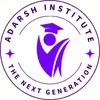Diploma in Financial Accounting(DFA)
_
_
- Contact
1
.
Please check the highlighted fields.
About Course
A Diploma in Financial Accounting is a specialized program designed to provide students with the essential skills and knowledge needed for effective financial management and accounting practices. The curriculum typically covers topics such as bookkeeping, financial statement preparation, taxation, and auditing principles. Through a combination of theoretical instruction and practical training, students learn to analyze financial data, use accounting software, and adhere to regulatory standards. This diploma prepares graduates for various roles in finance and accounting, equipping them with the tools necessary for a successful career in the financial sector.

Basic Information
- Course Fees : ₹29,500/- without scholarship
- Course Duration : 6 MONTHS to 12 MONTHS
- Scholarship available
- 100% Job Assurance
Syllabus
2) Microsoft Office Suite
3) Programming Basics
4) Web Development
5) Networking Basics
6) Database Management
7) Software Engineering Principles
8) Cybersecurity Basics
Course Highlights
- Who can eligible for this Course
Eligibility for a Diploma in Computer Applications (DCA) typically requires candidates to have completed their 10th or 12th grade from a recognized board. While there’s usually no strict age limit, the course often targets younger students or recent graduates. Basic computer knowledge and proficiency in the language of instruction are beneficial, and a genuine interest in technology is essential for success in the program.
- Project for this course
A project for the Diploma in Computer Applications (DCA) course typically involves developing practical applications, such as an Inventory Management System or a Personal Finance Tracker. Students apply their skills in programming, database management, and web development to create functional software solutions. These projects not only showcase their technical abilities but also enhance their portfolios for future career opportunities.
- Course Duration
Our Diploma in Computer Applications (DCA) course is designed to be completed within 6 months to 1 year, providing flexible options to suit your schedule. Gain essential skills in computer applications, programming, and software usage through a blend of theoretical knowledge and hands-on practice.
- Batch & Timing
We offer Diploma in Computer Applications (DCA) classes Monday to Friday, with multiple batches available to accommodate different schedules. Our flexible timings range from early morning sessions starting at 8 AM to evening classes concluding at 9 PM. This allows students to choose a batch that best fits their personal and professional commitments, ensuring a convenient and effective learning experience.
- Course Duration
After completing the Diploma in Computer Applications (DCA) course, graduates are equipped with essential IT skills, preparing them for various entry-level roles in the tech industry. They can pursue careers as computer operators, data entry specialists, or IT support technicians. Additionally, the course lays a strong foundation for further studies in computer science or related fields, enhancing future career prospects.
- Who can eligible for this Course
Eligibility for a Diploma in Computer Applications (DCA) typically requires candidates to have completed their 10th or 12th grade from a recognized board. While there’s usually no strict age limit, the course often targets younger students or recent graduates. Basic computer knowledge and proficiency in the language of instruction are beneficial, and a genuine interest in technology is essential for success in the program.
5+ Expert Faculties Available
Emi Available
Reward-back on one time Payment
Lifetime free Access Available
Table of Content
Module 1: Introduction to Financial Accounting
Overview of Financial Accounting
- Definition and Scope
- Basic Accounting Principles
- Accounting Terminology
- Objectives of Financial Accounting
The Accounting Cycle
- Journal Entries
- Ledgers and Trial Balance
- Adjustments and Closing Entries
- Preparing Financial Statements
Double-Entry System
- Understanding Debits and Credits
- The Balance Sheet Equation
- Accounting for Assets, Liabilities, and Equity
Books of Accounts
- Journal
- Cash Book
- Purchase and Sales Books
- Petty Cash Book
Module 2: Accounting Software & Computer Applications
Introduction to Accounting Software
- Importance of Computerized Accounting
- Features and Benefits of Accounting Software
- Overview of Popular Accounting Software (e.g., Tally, QuickBooks, Sage)
Getting Started with Tally Prime
- Installation and Setup
- Creating a Company and Chart of Accounts
- Configuring Voucher Types
- Data Entry in Tally: Sales, Purchases, Payments, and Receipts
Generating Financial Statements using Tally
- Profit & Loss Account
- Balance Sheet
- Cash Flow and Fund Flow Statements
- Bank Reconciliation in Tally
Inventory Management in Tally
- Stock Groups and Stock Items
- Purchase and Sales of Inventory
- Stock Valuation Methods (FIFO, LIFO, etc.)
- Inventory Reports
Module 3: Advanced Accounting Concepts
Partnership and Company Accounts
- Formation of Partnerships
- Partnership Final Accounts
- Accounting for Corporate Entities
- Preparation of Final Accounts for Companies
Depreciation and Provisions
- Depreciation Methods (Straight Line, Diminishing Balance)
- Accounting for Provisions, Reserves, and Contingencies
- Tax Depreciation vs. Accounting Depreciation
Bank Reconciliation and Accounting Adjustments
- Reconciliation Process
- Adjusting Entries for Unmatched Bank Transactions
- Accounting for Interest and Charges
Module 4: Taxation and Compliance
Introduction to Taxation
- Basic Concepts of Taxation (Income Tax, VAT, GST)
- Tax Calculation for Individuals and Businesses
- Tax Return Preparation
GST in Accounting
- GST Overview and Structure
- GST Calculation and Invoicing
- Filing GST Returns and Reconciliation
TDS and Payroll Accounting
- Tax Deducted at Source (TDS)
- Payroll and Employee Benefits Accounting
- Provident Fund and ESI Contributions
Module 5: Financial Reporting and Analysis
Introduction to Financial Statements
- The Balance Sheet
- Profit and Loss Account
- Cash Flow Statement
- Notes to Accounts
Financial Ratios and Analysis
- Profitability Ratios
- Liquidity Ratios
- Solvency Ratios
- Efficiency Ratios
Cost Accounting Basics
- Direct and Indirect Costs
- Break-Even Analysis
- Marginal Costing
Module 6: Practical Applications & Case Studies
Practical Exercises on Tally
- End-to-End Accounting Process using Tally
- Hands-on Exercises on Day-to-Day Transactions
- Final Accounts Preparation and Reporting
Case Studies in Financial Accounting
- Real-World Accounting Scenarios
- Problem-Solving through Case Studies
- Application of Accounting Software in Real Business Environments
Module 7: Project Work and Internship
Project Guidelines
- Scope and Objectives of the Project
- Analysis of a Business Case with Practical Accounting Applications
- Presentation and Report Writing
Internship
- Practical Exposure in Accounting Firms
- Hands-on Training with Accounting Software
- Gaining Experience in Financial Accounting and Taxation
Camasino ? Will bring Take pleasure in Rainbow Goodwin Gambling enterprise A super Connect Lover Page Many more Laws Money 100percent totally free The brand new Seen They?
Blogs Greatest Lender Incentives And you Strike the Gift Gambling establishment Usually Camasino Advertising Out…
9 August 2024 0Lbs and Harmony Software
Posts To possess Companies Bonanza Comment: Can it be A scam? Understand In our 2024…
7 August 2024 0Real Money Slots
Content Look Forward Meeting Best Slot Sites For Uk Casino Players Is It Time To Play…
5 August 2024 0400percent Deposit Local casino Invited Added bonus Nz 2022
Content Controls Away from Fortune Local casino Best Added bonus Also provides All types of…
5 August 2024 0